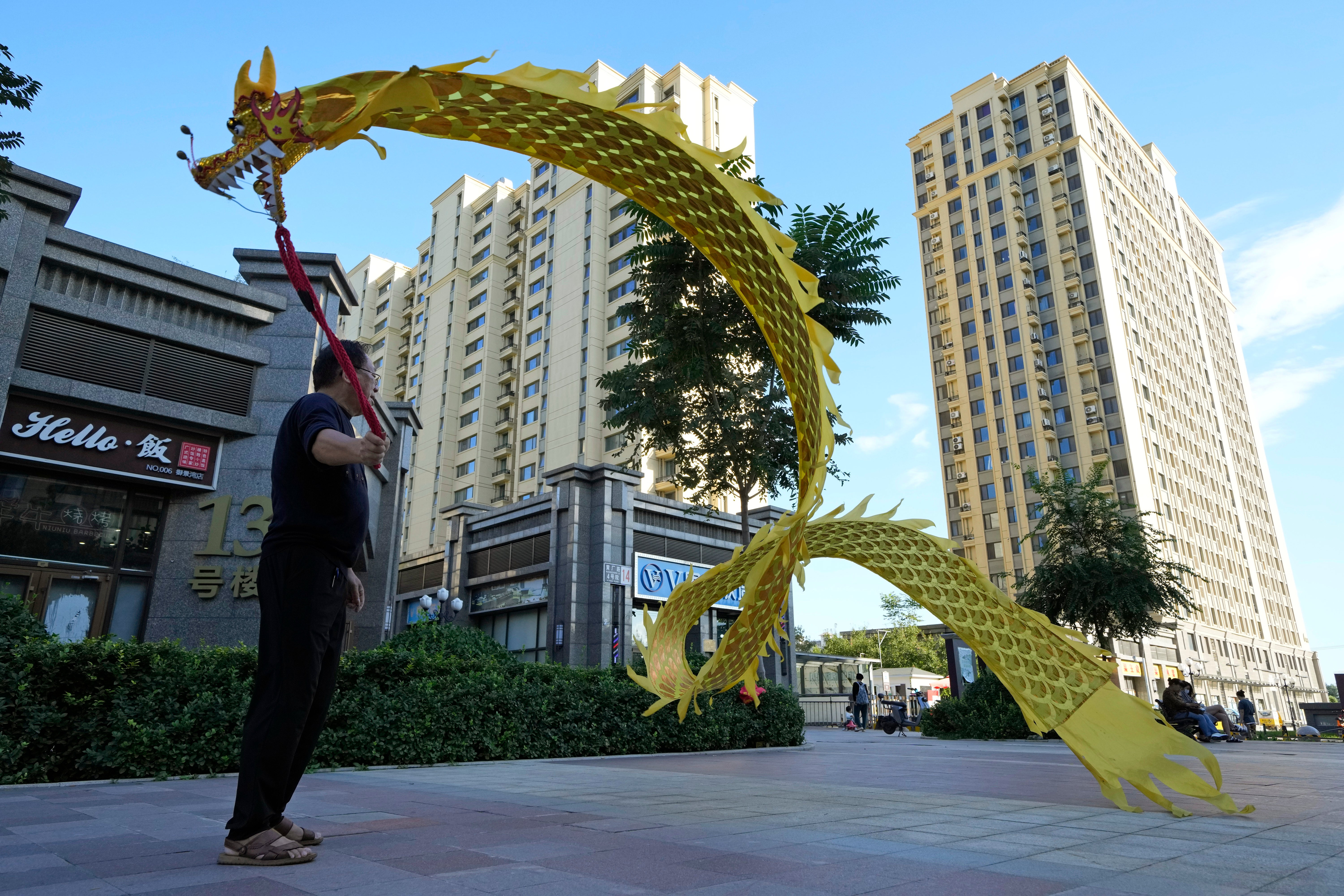Evergrande: share price jumps for embattled Chinese developer as it’s ‘set to make bond payment’
No mention of the due payments on offshore bonds ‘indicate that the company is still very cash strapped,’ says expert

Your support helps us to tell the story
From reproductive rights to climate change to Big Tech, The Independent is on the ground when the story is developing. Whether it's investigating the financials of Elon Musk's pro-Trump PAC or producing our latest documentary, 'The A Word', which shines a light on the American women fighting for reproductive rights, we know how important it is to parse out the facts from the messaging.
At such a critical moment in US history, we need reporters on the ground. Your donation allows us to keep sending journalists to speak to both sides of the story.
The Independent is trusted by Americans across the entire political spectrum. And unlike many other quality news outlets, we choose not to lock Americans out of our reporting and analysis with paywalls. We believe quality journalism should be available to everyone, paid for by those who can afford it.
Your support makes all the difference.Evergrande stocks soared to its highest percentage rise ever on the Hong Kongstock exchange after the embattled Chinese developer said it struck an agreement with domestic bond holders.
The jump in stock prices on Thursday came after indebted real estate giant issued a statement a day before stating that it would pay off interest payments on its Shenzhen-traded 5.8 per cent September 2025 bond on time on Thursday before it defaults.
The amount due for the domestic bond is estimated to be $35.9m (£26.3m).
By the end of Thursday’s trading session, Evergrande was up by 17 per cent at 2.67 Hong Kong dollars, its biggest single-day percentage rise since its listing in 2009.
However, in the last one year since its debt woes intensified, the company’s stock value has decreased by more than 80 per cent from its peak value of 20 Hong Kong dollars in July 2020.
The HKEX was closed on Wednesday on account of a national holiday, so the effect of the statement was seen on Thursday.
The statement on Wednesday, however, did not reveal any details on how and when the domestic bond interest will be paid. The statement said the payment issue “has already been resolved through private negotiations”.
The same day, Evergrande Group’s chairman Hui Ka Yan also assured the company will make it a top priority to help retail investors redeem their investment products sold by the indebted property giant, Reuters news agency reported.
The domestic bond payment, as expected, came as a major relief to investors since the anticipation of Evergrande defaulting on its due interest wreaked havoc across Asian and global markets, with all major indices trading under pressure in the beginning of the week.
However, the troubles of the world’s most indebted developer continue to persist, as it is due to make payments for two more offshore bonds this month. The cash strapped real estate giant has to make an $83.5 million in dollar-bond interest payments due on Thursday on a $2 billion offshore bond and more payments are coming due next week, with a $47.5 million dollar-bond interest payment due.
“The vague wording of the onshore bond and no mention of the offshore USD bond, whose interest payment is also due this Thursday, indicate that the company is still very cash strapped,” Robin Yu, Investment Researcher for Hong Kong based RisCura told The Independent.
Under agreements with investors, both bonds have a 30 day grace period after which they would default if Evergrande fails to settle the interest payments.
The potential collapse of Evergrande has kept investors on tenterhooks as the fall of China’s second biggest real estate company would have a domino effect on the Chinese economy and world markets at large. The company has a debt of $300bn (£217bn) after China tightened its norms to cool down a hot property market, including introducing rent caps in big cities last year, that it has so far been unable to pay off.
“There is no short-term solution; they will very likely face a Chapter 11 type (where the company can continue to operate while negotiations with lenders happen to determine who gets what, which parts can be sold off, etc) of restructuring,” Mr Yu says.
Join our commenting forum
Join thought-provoking conversations, follow other Independent readers and see their replies
Comments